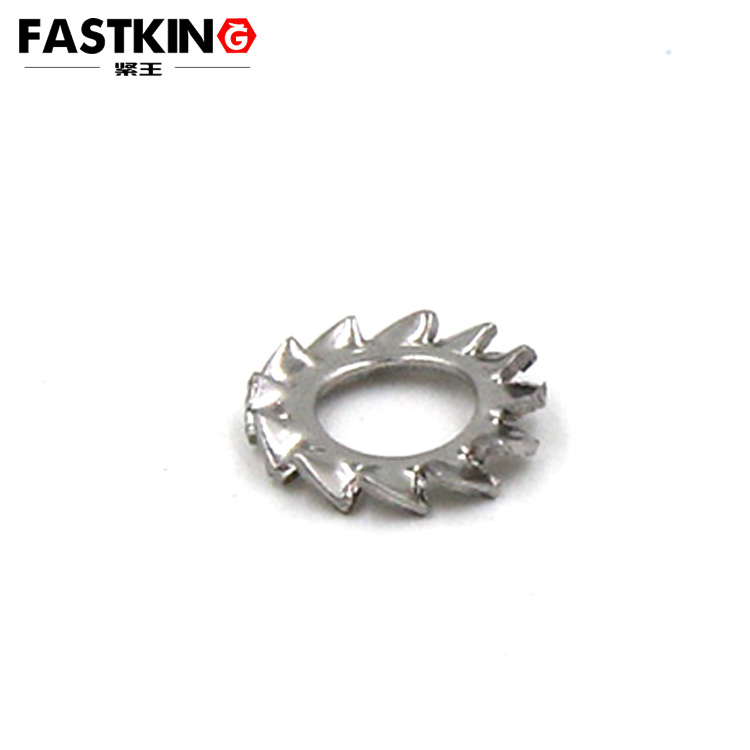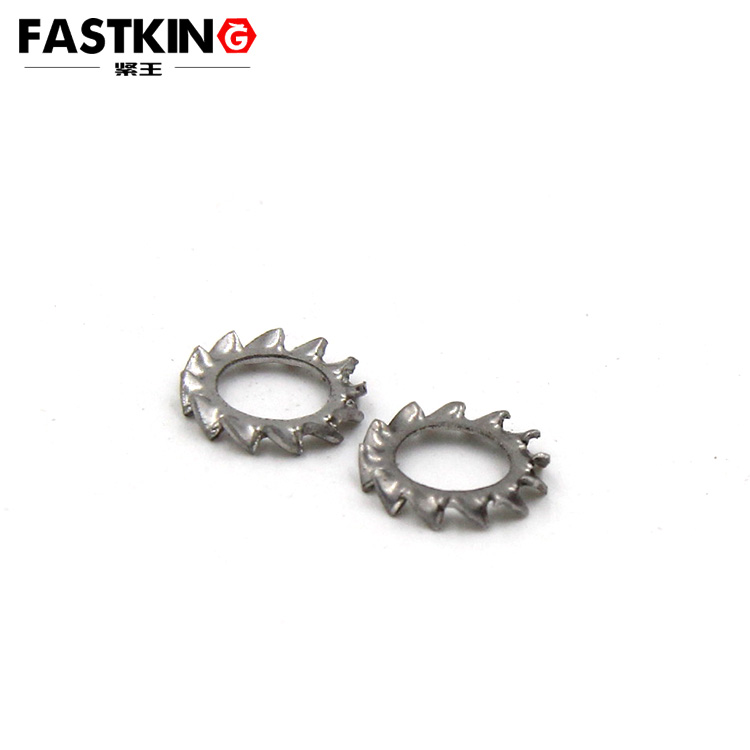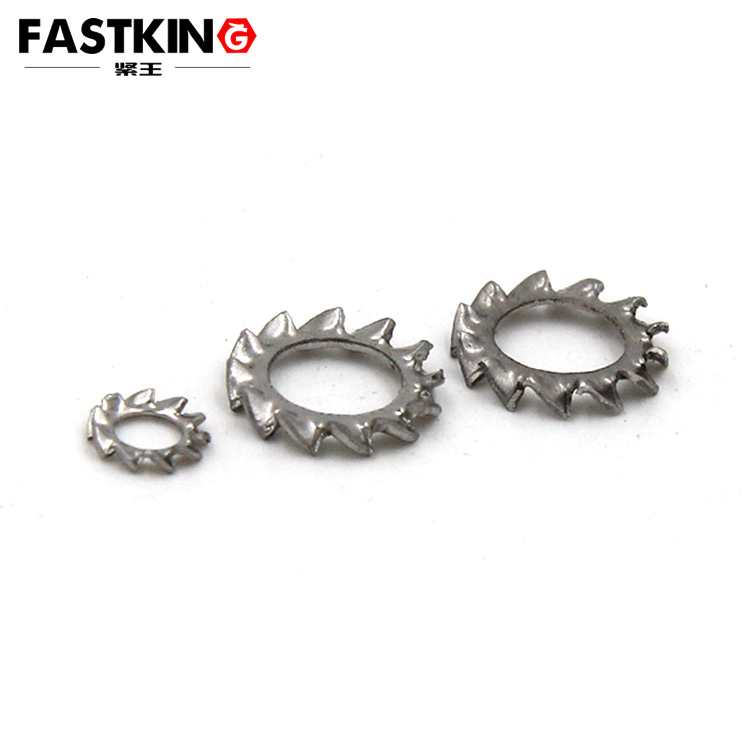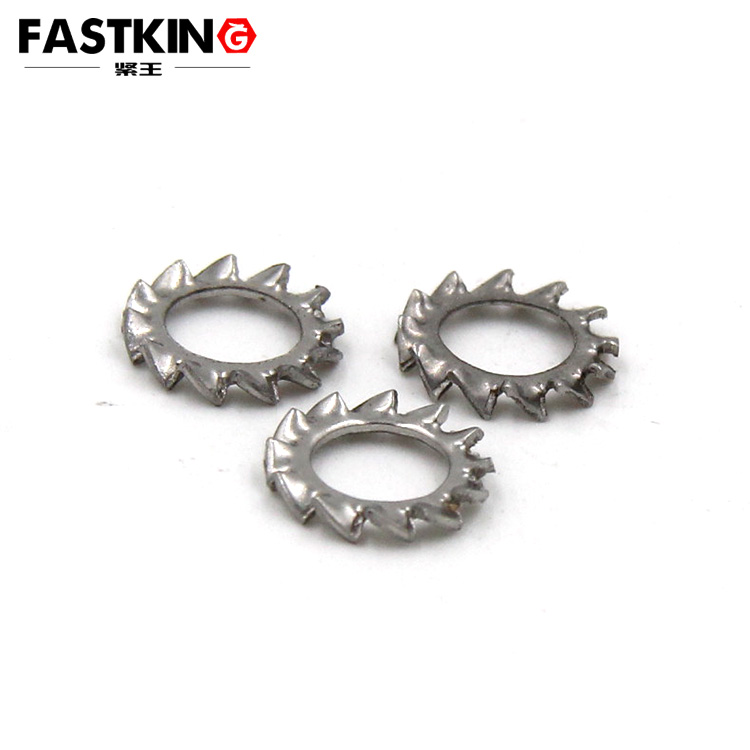External tooth lock washers are essential components in mechanical fastening systems, designed to prevent bolts and nuts from loosening under vibration or load. Their unique toothed design provides a locking mechanism that enhances the stability and reliability of connections. This article will provide a comprehensive guide on the use and applications of external tooth lock washers.
Structure of External Tooth Lock Washers
External tooth lock washers are typically made from high-strength steel or stainless steel and feature the following key components:

1. Toothed Design: The outer edge of the washer is equipped with teeth that bite into the surface of the connected parts, providing a locking effect.
2. Center Hole: The hole in the center of the washer allows it to fit snugly over bolts or screws, ensuring proper alignment during installation.
How to Use External Tooth Lock Washers
1. Selecting the Right Washer
Choose an external tooth lock washer that matches the size of the bolt or nut. Ensure the center hole diameter is slightly larger than the bolt or screw diameter to facilitate smooth installation.
2. Installing the Washer
Place the external tooth lock washer beneath the bolt or nut, with the toothed side facing the contact surface. This orientation ensures that the teeth bite into the surface, increasing friction and preventing loosening.
3. Tightening the Bolt or Nut

Use the appropriate tool (such as a wrench or power tool) to tighten the bolt or nut. As the bolt is tightened, the teeth of the washer will embed into the contact surface, providing a secure lock.
4. Checking the Fastening Effect
After tightening, inspect the connection to ensure the washer is properly seated and the bolt or nut is secure. If any looseness is detected, retighten or replace the washer as needed.
Applications of External Tooth Lock Washers
1. Mechanical Manufacturing
In mechanical manufacturing, external tooth lock washers are widely used to secure components such as bearings, gears, and drive systems. Their anti-loosening properties make them ideal for high-vibration and high-load environments.
2. Automotive Industry
In the automotive sector, these washers are used to fasten engine components, chassis parts, and interior fixtures. Their ability to withstand high vibration and impact ensures the stability and safety of vehicle operations.
3. Electronics Assembly

In electronics, external tooth lock washers are employed to secure circuit boards, enclosures, and internal components. Their compact size and effective locking mechanism make them suitable for delicate electronic assemblies.
4. Construction Engineering
In construction, these washers are used to fasten steel structures, bridges, and heavy machinery. Their robust design and anti-loosening capabilities contribute to the stability and safety of structural connections.
5. Appliance Manufacturing
In the manufacturing of household appliances such as washing machines, refrigerators, and air conditioners, external tooth lock washers ensure that components remain securely fastened during long-term use, even in high-vibration conditions.
Precautions for Using External Tooth Lock Washers
1. Select the Right Size: Choose a washer that matches the bolt or nut size to ensure proper fit and function.
2. Correct Installation Orientation: Ensure the toothed side of the washer faces the contact surface to maximize friction and locking effectiveness.
3. Avoid Over-Tightening: While tightening, avoid excessive force that could damage the washer or the contact surface.
4. Regular Inspection: Periodically check fastened components for signs of looseness or wear, and replace any damaged washers to maintain connection integrity.
Conclusion

External tooth lock washers are highly effective in preventing loosening and ensuring the stability of mechanical connections. Their versatile applications across industries such as mechanical manufacturing, automotive, electronics, construction, and appliance manufacturing highlight their importance in modern engineering. Proper selection, installation, and maintenance of these washers can significantly enhance the safety and reliability of fastened components.
